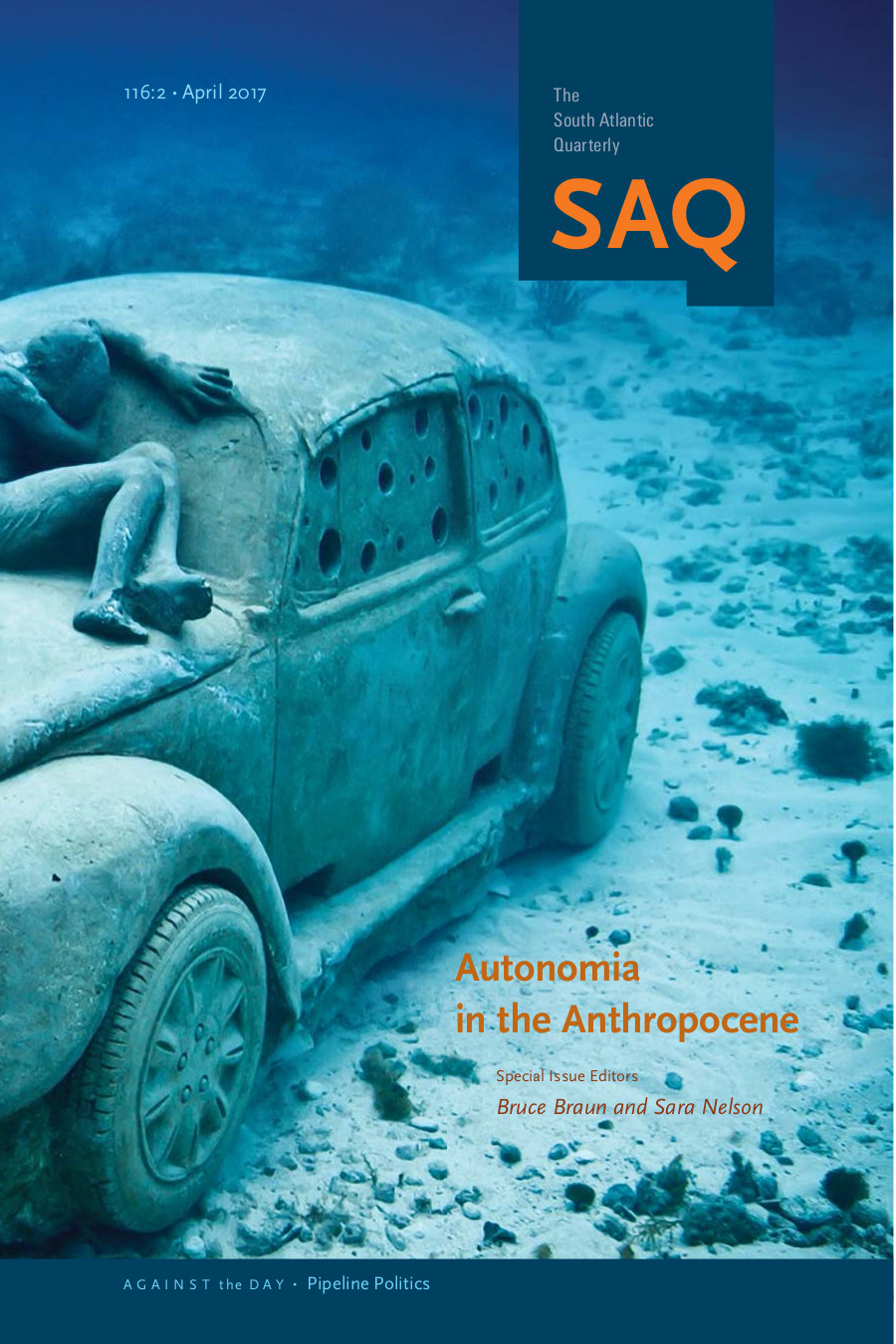Neda Atanasoski, Kalindi Vora: Surrogate Humanity: Race, Robots, and the Politics of Technological Futures (2019)
Filed under book | Tags: · artificial intelligence, automation, capitalism, colonialism, ethics, feminism, labour, liberalism, machine, military, race, robotics, robots, technology, women, work

“In Surrogate Humanity Neda Atanasoski and Kalindi Vora trace the ways in which robots, artificial intelligence, and other technologies serve as surrogates for human workers within a labor system entrenched in racial capitalism and patriarchy. Analyzing myriad technologies, from sex robots and military drones to sharing-economy platforms, Atanasoski and Vora show how liberal structures of antiblackness, settler colonialism, and patriarchy are fundamental to human—machine interactions, as well as the very definition of the human. While these new technologies and engineering projects promise a revolutionary new future, they replicate and reinforce racialized and gendered ideas about devalued work, exploitation, dispossession, and capitalist accumulation. Yet, even as engineers design robots to be more perfect versions of the human—more rational killers, more efficient workers, and tireless companions—the potential exists to develop alternative modes of engineering and technological development in ways that refuse the racial and colonial logics that maintain social hierarchies and inequality.”
Publisher Duke University Press, Durham, NC, March 2019
Perverse Modernities series
ISBN 9781478003861, 1478003863
x+240 pages
Interview with authors: Lesia Pagulich, Tatsiana Shchurko (Feminist Critique, 2019).
Reviews:Sibille Merz (Ethnic & Racial Studies, 2019), Barbara Herr Harthorn (American Ethnologist, 2020), Anita Lam (Surveillance & Society, 2020), Andrea Flores (Information & Culture, 2020), Raquel Bosó Pérez (Sociology of Health & Illness, 2020), Nina Trige Andersen (Modern Times, c.2020), Kevin Pabst (Security Journal, 2020).
Comment (0)South Atlantic Quarterly, 116(2): Autonomia in the Anthropocene (2017)
Filed under journal | Tags: · anthropocene, autonomy, capitalism, cognitive capitalism, commons, labour, marxism, multitude, subjectivity

“Despite Autonomia’s widespread influence on political action and post-Marxist scholarship, it has been surprisingly slow to address planetary change and environmental politics. With a focus on cognitive capitalism, many autonomist scholars have downplayed or fully ignored the ecological dimensions of post-Fordism—its foundations in extractive energy economies, its links to the accelerating financialization of nature under the banner of so-called green capitalism, its harnessing of nonhuman capacities, and its wildly uneven toxic geographies. This lack of engagement is regrettable given that, we propose, autonomist insights hold great promise for understanding both the transformed relation between capital and nonhuman natures in post-Fordism and the many political movements that have emerged in response. […]
It is no longer evident that key terms found in the autonomist lexicon—species being, the common, multitude, potentia—survive the challenge of the Anthropocene unchanged or that the production of subjectivity (a cornerstone of autonomist thought) can be understood solely in terms of language, habit, or gesture. It may therefore be necessary to think beyond the struggles of the factory floor, or those of the cognitariat today, to imagine and think from other sites of struggle, other forms of solidarity, and other experiments in “commoning.” These bring into play unfamiliar actors and unacknowledged geographies: sites of extraction and circuits of waste, indigenous communities and territories, rising seas and toxic landscapes that are materially present within the informationalized economies of global capitalism, but often invisible to those working within them. We might say, then, that the Anthropocene names autonomist Marxism’s unthought, an unthought that intrudes on its political imaginaries. What happens to autonomism if it begins to question the autonomy of the human? Or if it leaves its privileged sites in the global North?”
With contributions by Sara Nelson and Bruce Braun, Miriam Tola, Jason Read, Elizabeth R. Johnson, Elizabeth A. Povinelli, Matteo Pasquinelli, Karen Pinkus, Marco Armiero and Massimo De Angelis, Anja Kanngieser and Nicholas Beuret, and Isabelle Stengers.
Edited by Sara Nelson and Bruce Braun
Publisher Duke University Press, Apr 2017
ISSN 0038-2876
178 pages
Giorgio Griziotti: Neurocapitalism: Technological Mediation and Vanishing Lines (2016–)
Filed under book | Tags: · automation, capitalism, commons, decentralization, labour, neurocapitalism, politics, production, technology, theory

“Analyzes the changing politics of technology, charting out possibilities for autonomous cooperation
Technological change is ridden with conflicts, bifurcations and unexpected developments. Neurocapitalism takes us on an extraordinarily original journey through the effects that cutting-edge technology has on cultural, anthropological, socio-economic and political dynamics. Today, neurocapitalism shapes the technological production of the commons, transforming them into tools for commercialization, automatic control, and crisis management.
But all is not lost: in highlighting the growing role of General Intellect’s autonomous and cooperative production through the development of the commons and alternative and antagonistic uses of new technologies, Giorgio Griziotti proposes new ideas for the organization of the multitudes of the new millennium.”
First published as Neurocapitalismo: Mediazioni tecnologiche e linee di fuga, Mimesis, 2016.
Foreword by Tiziana Terranova
Translated by Jason Francis McGimsey
Publisher Minor Compositions, Colchester, February 2019
Open access
ISBN 1570273421, 9781570273421
244 pages
PDF, PDF
Reviews and extracts in Italian, Spanish and French

